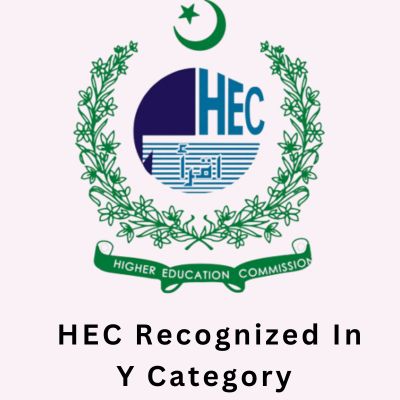Plagiarism Policy
Plagiarism
There should be zero plagiarism. However, there may be similarity in the submitted articles, which is then analyzed for any possibility of plagiarism. This similarity should also not exceed 19%.
• There should not be any missing reference of work cited in the text by the author in the list of references at the end of the article.
• There should not be any similarity of more than 5% from a single source.
• The editorial board has the right to evaluate a submitted paper to determine whether any similarity constitutes plagiarism.
• The editorial board may ask the author/s to provide the data files and the results drawn by the authors.
Self-Plagiarism
JIESS only accepts original work. Any similarity between someone's work and the author/s own work is scrutinized for plagiarism detection. Any reproduction from the author's work should be according to the requirements and norms of research. Research papers submitted from research theses written by scholars and students should also adhere to the general rules of similarity.
Authorship Issues
All authors should have significant contributions to a research paper. Anyone who has a minor contribution to a research paper should be acknowledged.
Authorship issues fall into three main types:
• the exclusion of a contributor from the list of authors
• the inclusion of persons who have not contributed to the manuscript
• the order of the authors on the manuscript and the level of contributors that have made to the manuscript
The decision of the editorial board of JIESS will be final in the resolution of any authorship dispute. Nevertheless, as the research process is undertaken before submitting a manuscript to JIESS, JIESS or the editors can't comment on the level of contribution by each author.
Authorship cannot be changed after the completion of the peer-review process. However, if an article is not sent for peer review, the corresponding author may apply for changes in authorship with a sound reason.
Defamation/Libel
Suppose a study is done on some organization or people. Their consent should be provided. In case of any defamation, seen by the editorial board or mentioned by the concerned organization/person, the submitted article may be rejected.
Suppose unconfirmed, controversial, and wrong statements are made about organizations or people in a submitted paper. In that case, JIESS reserves the right to ask for changes and alterations or may reject the manuscript.
Critiques and reviews of products and services are acceptable, but comments must be constructive and must not be made maliciously.
If statements have been made in a manuscript published by JIESS and considered defamatory, retraction may be done, and JIESS may issue an apology.
Fabrication
Making up data or results and/or reporting the results would constitute fabrication. In case of fabrication, the editorial board of JIESS may reject the article, or if found after publishing the paper, it may be retracted. In addition, the author/s may also be barred from publishing in JIESS.
Unethical Research and Testing
An author must follow appropriate national and international procedures regarding data protection, privacy rights, medical testing on humans and animals, and child protection. Authors must make all consent forms and requisite forms available from the appropriate regulatory bodies to the editors and publishers at JIESS. JIESS encourages all authors to demonstrate how their study contributes to the advancement of society. If a study is found to break national and international procedures and this is confirmed with the appropriate regulatory body, JIESS may go for retraction.
Conflict of Interest
The authors, editor, and reviewers should declare all conflicts of interest.
Conflict of interest:
• A personal and financial interest in the outcomes of the study
• Undisclosed financial support for the study by an interested third party
• A personal and financial interest in the suppression of the study
A note to highlight the background of financial support for the study from third parties of any other possible conflict of interest must be added to the manuscript before review.
If a conflict of interest is suspected, then this should be reported to JIESS. For example, a concern about an editor should be raised with the journal publisher at JIESS.
In all cases, JIESS may:
1. Act efficiently and professionally and reply to emails and letters of complaint to
2. Be completely objective and fair
3. Always scrutinize the evidence before taking further steps
4. Always approach the accused person/s to clarify their position before taking any action
5. Ensure that they provide sufficient time for all parties to respond
6. Keep all parties informed of decisions, including copyright owners, authors, and editors
7. It is JIESS's responsibility to secure the author's moral rights and to ensure the correct record of the literature
Following a fair and considered process, the final decision in any disputed case will rest with the JIESS and its editorial board. Please note that JIESS reserves the right to end the process with a case if the complainant presents a wrong name or acts inappropriate or threatening towards the JIESS team.





